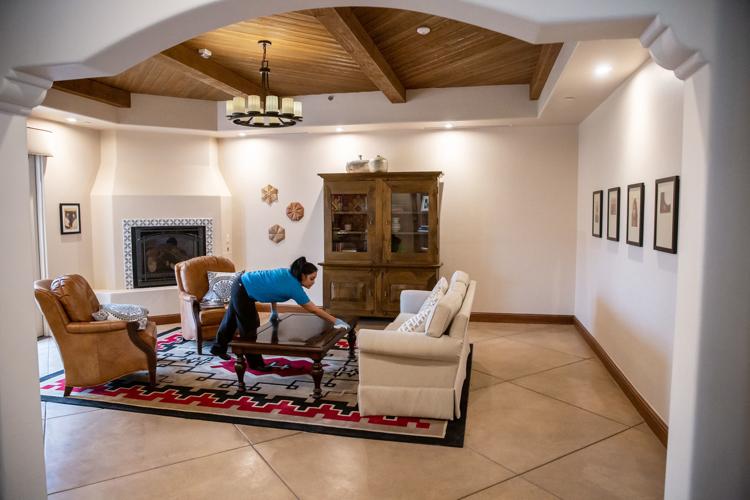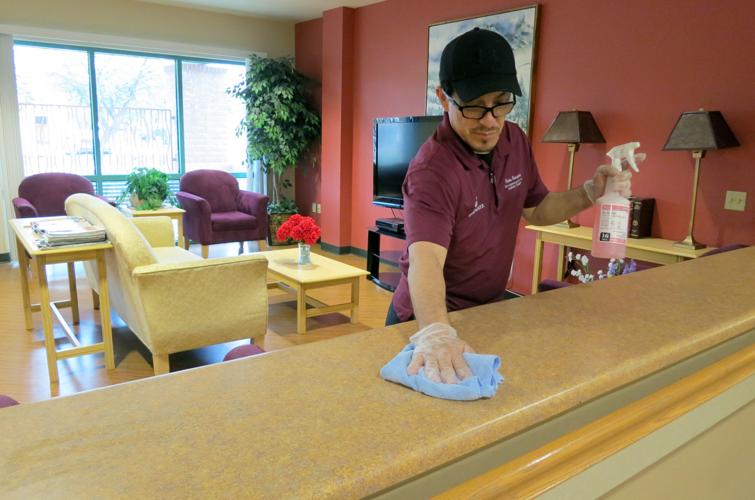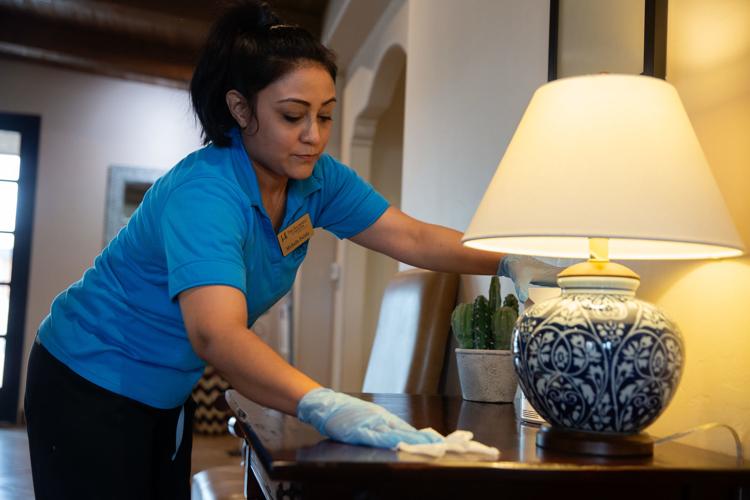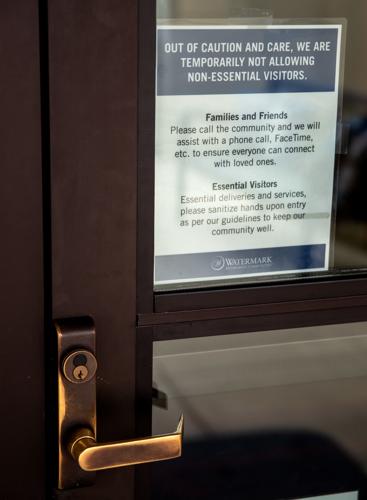In response to the novel coronavirus, Tucson senior retirement communities — including assisted living, skilled nursing, memory care and rehabilitation units — are canceling outings and limiting visitors to help protect the health of their residents, officials said.
Watermark Retirement Communities, which owns four Tucson-area locations — The Fountains at La Cholla, The Hacienda at the River, The Hacienda at the Canyon and The Watermark at Continental Ranch — formed a COVID-19 task force to ensure safety at its properties across the nation. The local facilities house about 1,000 residents total and its properties across the nation another 9,000 residents, said Stephanie Boreale, national director of health strategy for Watermark.
“We are taking every possible precaution to make sure the residents are safe,” said Boreale, including adhering to or exceeding the most stringent recommendations as provided by local, state and national authorities.
Tom Hines, vice president of operations at Tucson’s Handmaker senior living community, said administrators are keeping staff, residents, family and visitors updated about the coronavirus and questioning and heavily limiting visitors to the facility. It also offers assisted living, skilled nursing, memory care and rehabilitative services.
“We are being extra cautious to minimize exposure and to relieve family concerns about the people they love,” said Hines. “We want residents and staff here to be safe and as healthy as possible.”
Serious illness for elderly
For most people, the coronavirus causes only mild or moderate symptoms. However, for older adults and people with existing health problems, it can cause more severe illness, including pneumonia, and can be fatal. In Washington, at least 19 residents of a long-term care facility have died from the virus.
In a letter to residents, family members, and others, Handmaker officials say it no longer wants visitors on campus, and individual requests will be decided by nursing administrators.
Handmaker staff canceled a March 18 celebration to honor seven centenarians at the facility, Hines confirmed, and it also has suspended all activities off the campus. “Residents will only be leaving the facility on an as needed basis for medical necessity,” states a letter.
Officials say in the letter that “this is only temporary and our protocol is strictly per the guidance” of the U.S. Centers for Disease Control and Prevention, the Centers for Medicare & Medicaid Services for all long term care communities.
“We are currently on a ‘Limited Visitor Status’, which can be upgraded to a ‘Restricted Visitor Status’. If that becomes necessary, you will once again be notified.” Staff will conduct surveillance and infection control and implement actions recommended in accordance with the CDC, the Arizona Department of Health Services and the World Health Organization.
The capacity at the Handmaker campus with residents and staff is 260.
The precautions at Watermark senior communities include:
Not allowing outside visitors to enter the facilities if the visit is not urgent. Telephone calls or FaceTime
- with family on mobile devices or computers can be done.
- Essential visitors must sanitize hands upon entry, including those bringing pharmacy deliveries, and home health-care workers dealing with residents.
- The suspension of field trips to public places.
- Screening vendors, essential visitors and employees about their travel, and if they feel ill.
“Residents who are able to leave the facility with a loved one can certainly do that,” said Miller, adding that they are reminded to avoid anyone who is ill, use hand sanitizer and make sure they follow safe social distancing by staying 3 feet away from people. They also are told not to hug, shake hands or kiss family, which can be difficult with grandchildren, Miller acknowledged.
Officials said community life teams will maintain an engaged lifestyle and keep residents’ spirits lifted to avoid feelings of fear or isolation.
Activities at the complexes can include football bowl games trivia and tailgate parties, yoga, dancing, gardening, billiards, making flower arrangements, learning about drumming and Native American flute music.
Miller said staff found that residents are overwhelming in favor of the precautions and measures being taken to help assure their safety from the novel coronavirus. She said employees are calm and support the measures for the safety of everyone. Workers also are reminded to stay home if they are sick.
It is not known how long the restrictions will stay in place.
“We are evaluating national and regional information regarding infection and recommendations from state and local health departments, and the Centers for Disease Control and Prevention,” said Boreale.
Watermark created policies for SARS, the norovirus and an outbreak of influenza that were carried out at the communities where the illnesses occurred. However, Watermark has made the coronavirus precautions a national response. “What we want to continually communicate to residents, families and employees is that we are prepared and taking a proactive approach.”
In-home care workers take precautions
In 1981 Judy Clinco, a registered nurse, founded Catalina In-Home Services — a Tucson home-care agency — when her mother needed support to remain in her home.
As an advocate for clients and caregivers, she also founded CareGiver Training Institute in 2001 for caregivers working in home care, assisted living facilities and nursing homes.
Employees for Catalina In-Home Services undergo annual infectious control training, and the company sends communications to caregivers about protecting themselves and their clients with hand washing, coughing into a tissue and disposing of it, and wiping down kitchen utensils and appliances, along with pens, phones and heavily used objects in a home.
Any visitor to the home must use sanitizer wipes that are put by the door, and then wash their hands with soap, said Clinco.
“If a client is not feeling well, the caregiver must immediately report it, and our nurse will assess what is going on. We have to stay on top of this,” Clinco said. “We also emphasize if a worker feels sick they must stay home and they will be relieved from their assignments.”
In-home caregivers are also advised to avoid traveling outside of the local community if possible, and to stop attending large gatherings.
The company also has “an emergency readiness plan for those clients who don’t have family members and who need to rely on us 100 percent. They become our priorities,” said Clinco.
She said administrators are also keeping up to date on the latest recommendations on the websites of the CDC, Home Care Association of America, state Department of Health Services and the county health department.






